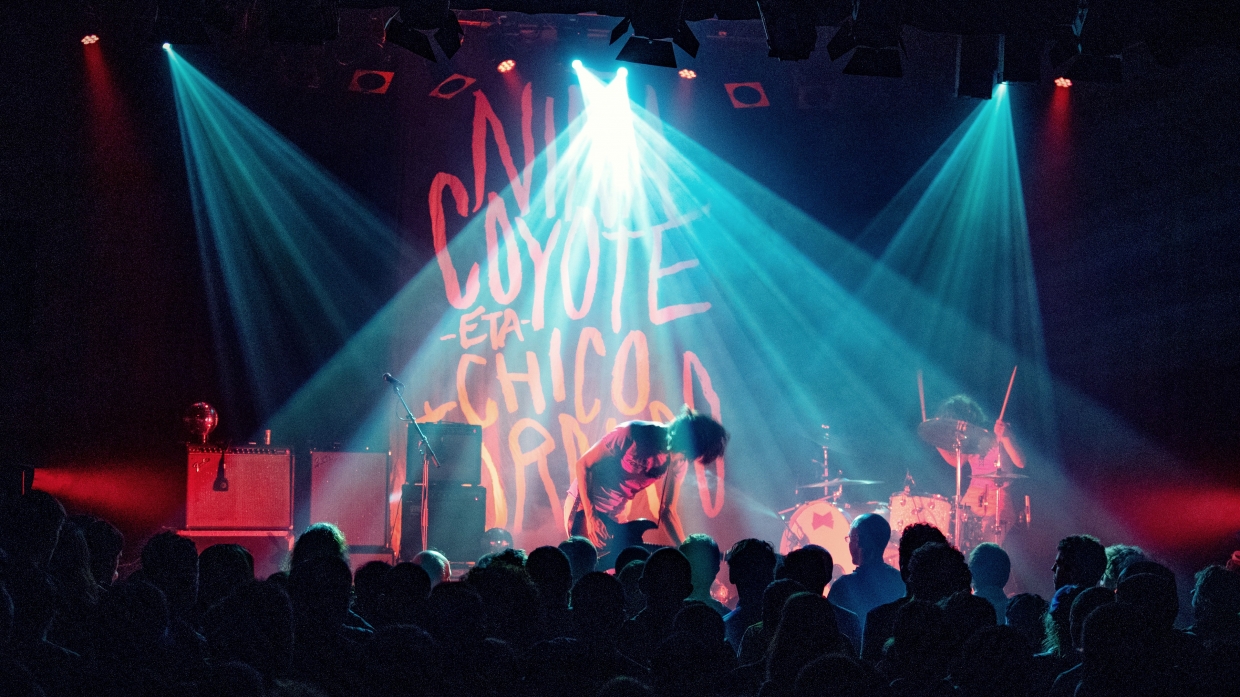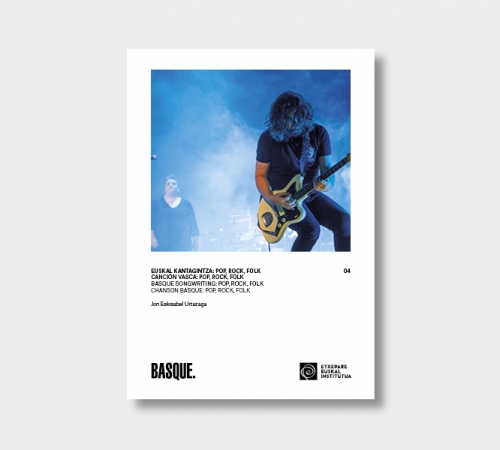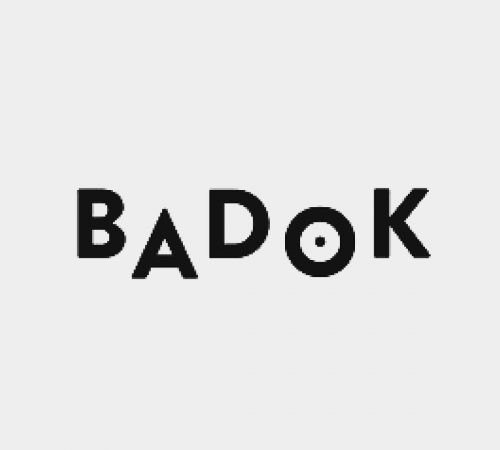Basque songwriting: pop, rock, folk
Euskara. Kultura. Mundura.
 Basque songwriting: pop, rock, folk
Basque songwriting: pop, rock, folk Basque voices sing out to the world. Music is one of the most dynamic sectors of Basque culture. New groups are constantly being formed, with musicians recording their music and uploading their records on digital platforms, as well as performing at concert halls, cultural centres, youth squats (gaztetxes), and bars across the Basque Country. Basque song is so diverse that today almost every style is sung in Euskara. New generations of musicians from music schools and conservatories join musicians with years of experience under their belts. Basque musicians used to have to leave the country to record but now the network of highly-regarded recording studios and sound technicians is so solid that musicians come from abroad to record here. Our folk, pop and rock music has been used for everything from poetry to social and political change, from entertainment to personal conviction. It has been the vehicle for reviving old traditions and creating new ones.
In 1961, Mixel Labegerie recorded his songs on a magnetophon tape recorder, marking the beginning of modern Basque music. One of the novelties of Labegerie´s music was the Spanish guitar. Another major shift was that he wrote songs of protest against the suppression of Basque identity, writing all of the lyrics and music to his songs himself. In 1965, Ez Dok Amairu followed the path forged by Labegerie, taking it a step further. More a movement than a group, Ez Dok Amairu, named by the sculptor Jorge Oteiza, was a collective of singers, musicians, writers, artists and dancers. The performances brought together different artistic disciplines such as song, dance, txalaparta (percussion instrument) and poetry. Between 1965 and 1972, Ez Dok Amairu refreshed the popular songbook while borrowing outside influences to create new songs. Some of the leading names associated with the group were Mikel Laboa, Benito Lertxundi, Lourdes Iriondo, Xabier Lete, Joxean Artze and Jose Anjel Irigarai. The era of protest song, at the tail end of the dictatorship, gave us some of the most memorable songs in Basque music. Pantxoa eta Peio, Gorka Knorr, Imanol Larzabal, Gonzal Mendibil and Maite Idirin were the most prominent singer-songwriters of the period.
The birth of Basque rock is inextricably tied to Niko Etxart and a band called Errobi. Eventually, bands took the place of singer-songwriters. Symphonic rock and English folk bolstered well-known traditional tunes; the dance and rock band Itoiz was pivotal, as was Oskorri in the area of folk. Ruper Ordorika began his career in the years following the end of the dictatorship. He was a member of Pott Banda, a fundamental group in the history of Basque literature. Together with Ordorika, some of the most relevant solo singers of contemporary Basque song included Fermin Muguruza, Gari, Anari, Jabier Muguruza, Petti and Rafa Rueda. The deep economic and social crisis of the 1980s ushered in an era of nonconformity, fanned by the flames of London punk. This led to a change in the Basque music scene, with the advent of punk, ska, reggae and hardcore bands. Most of the bands sang in Spanish, including La Polla Records, Eskorbuto, Barricada and, at first, Kortatu; Hertzainak, Zarama and later Kortatu sang in Basque. This was known as the Radical Basque Rock movement. In the area of folk music, musician and researcher Juan Mari Beltran was already working to revive Basque folk music. The brothers Fermin and Iñigo Muguruza, who had played with Kortatu, began a group, Negu Gorriak, in the 1990s incorporating hip hop music and culture into the Basque language. The Basque music scene was becoming more diverse and embracing different styles. Ama Say, BAP!!, Beti Mugan, Dut, Sorotan Bele and Zazpi Eskale are just a few of the bands that made a name for themselves at the time. Su Ta Gar brought us heavy metal and Joseba Tapia and Kepa Junkera were the names responsible for popularizing ´trikitixa´ music (Basque diatonic button accordion).
Self-production is the most relevant phenomenon of recent years. Far from homogeneous, today´s Basque music scene is diverse, vibrant, and comes in all shapes and sizes. Rap and urban music are in vogue and Glaukoma, 2zio, Aneguria, La Basu and La Furia are all singing in Basque. Mursego, Amorante, Joseba Irazoki, Maite Larburu and Ibon RG are at the vanguard of experimental music. Delorean and Anita Parker are big names in electronic music. Berri Txarrak has been a household name in electric guitar bands, along with Zea Mays, Lisabö and Willis Drumond. Leading names in pop and rock are Ken Zazpi, Bide Ertzean, Rafa Rueda, Belako and Izaki gardenak. And in folk music, we have Oreka TX, Korrontzi and Kalakan.
About 200 works in Basque are released every year in digital and physical format, mainly CDs, but the LP is making a strong comeback as seen in the Basque music portal badok.eus.
Do you want to learn more about Basque music? Download this book for free.
Related content
-

Basque songwriting: pop, rock, folk
Do you want to know more about Basque songwriting? Download this book for free. (Basque - English). Basque - French and Basque - Spanish versions are available by browsing the website in Basque and in Spanish respectively.
-

Basqueculture.eus
Visit Basqueculture.eus and get inspired with articles and stories about our culture and society.
-

10 things to know about Basque culture
It’s not easy to condense the culture of a country into a brief brochure. This is an attempt to spark curiosity and encourage readers to learn more about the Basque language, culture and contemporary creation.
-

Musika Bulegoa
Musika Bulegoa was created to support creative musical talent and producers in the Basque Country. It is an open forum where different actors in the music industry can meet and collaborate.
-

Badok
Website that brings together the largest digital archive of music made in Basque language.

